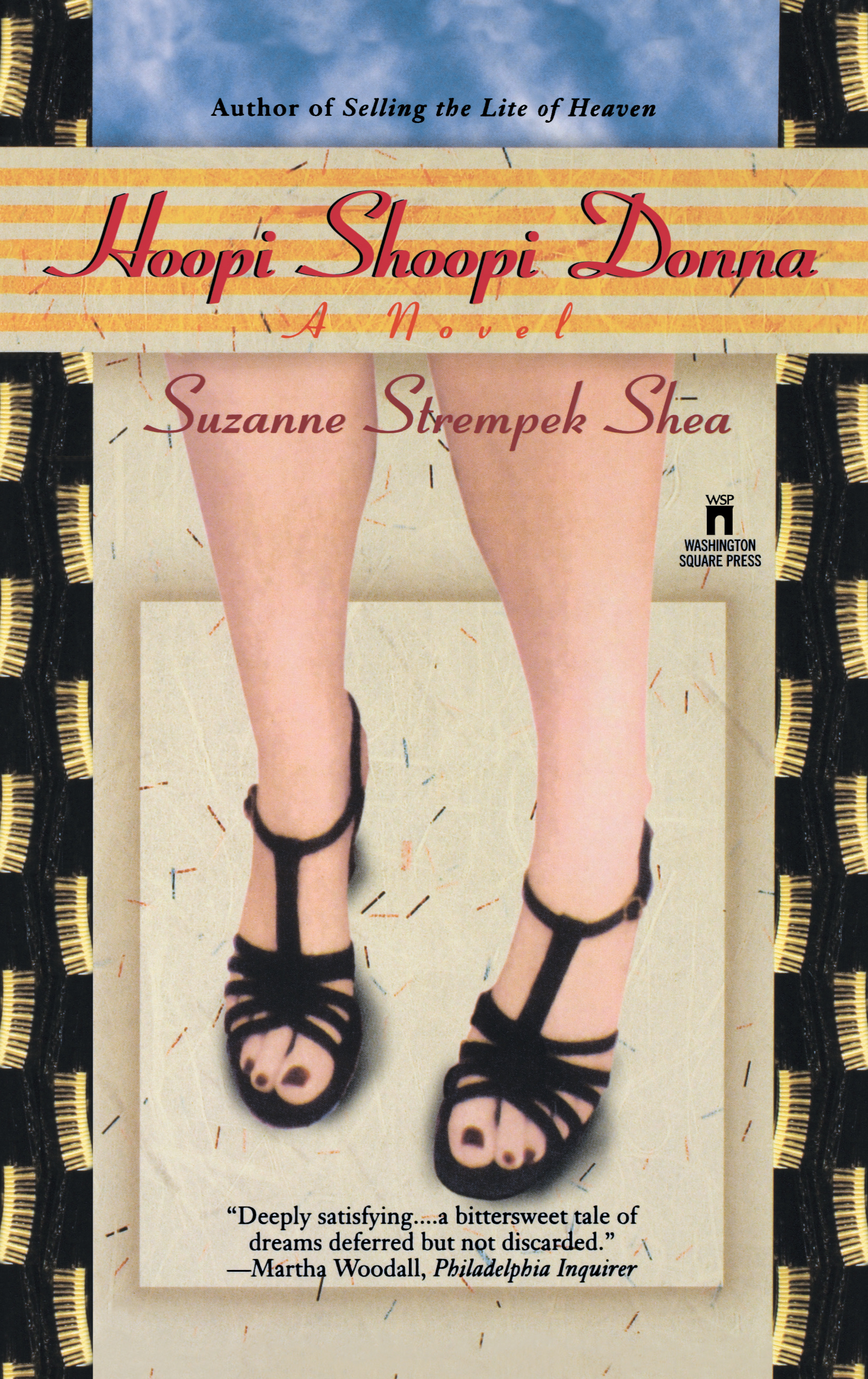Get our latest book recommendations, author news, competitions, offers, and other information right to your inbox.
Table of Contents
About The Book
Then came Betty, a tiny and adorable five-year-old, sent from Poland by Adam's destitute brother. Bringing with her only a rubber doll's leg and her old-world charm, Betty became the little sister Donna never had -- and a threat to her father's love. During a long and painful rift, a dance of betrayal and hurt, Donna must look to her beloved polka music for the key to healing.
Reading Group Guide
Get a FREE ebook by joining our mailing list today! Get our latest book recommendations, author news, competitions, offers, and other information right to your inbox.
Pierogi dough:
3 cups flour
2 beaten eggs
1 cup sour cream
1/2 tsp salt
Mix and let stand 20 minutes
Divide dough in half and roll thin. Cut circles with biscuit cutter. Place a small spoonful of filling a little to one side of each round of dough. Moisten edge with water, fold over and press edges together firmly. Be sure they are well sealed to prevent the filling from running out. Drop pierogi into salted boiling water. Cook gently for 3-5 minutes after they float to the top. Take out carefully with a perforated spoon. Serve pierogi with melted butter.
Cabbage filling:
1 small head cabbage
1 small onion, chopped fine
salt
pepper
Quarter cabbage and cook in boiling, salted water for 15 minutes. Drain, cool, and chop fine. Saute onion in butter, add chopped cabbage, salt and pepper to taste and continue to fry until the flavors blend. Cool. Stuff pierogi.
Reading Group Discussion Points
- Shea's two novels have been set in the Polish-American community, but readers from a variety of ethnic backgrounds are relating to her characters. What do you think are some of the elements of Hoopi Shoopi Donna that people might find familiar to their own lives and experiences? How common are the elements of the immigrant experience and the things they lend to subsequent generations?
- Has reading this book changed your view of the Polish-American community? If so, how?
- The theme of Hoopi Shoopi Donna involves a father-daughter relationship that is severely strained and eventually undone through a series of mishaps. What happened to that relationship and is this unique to the Polish-American community, or is it something that could happen to anyone?
- Even though Donna's cousin Betty has unwittingly become responsible for the split between Donna and her father, in what ways does Betty try to make amends to Donna and why has Donna made herself so emotionally unavailable to Betty?
- As opposed to Betty, Donna makes terrible choices when it comes to men. What were Donna's ulterior motives in making these choices? Can you think of examples of other women who made similar mistakes and why?
- Although the book is humorous throughout, it has its share of pain. Donna's pain seems so real, in fact, that it almost hurts to read about it. How did this talented, adorable girl, the apple of her father's eye, end up so unhappy and what do we learn about the powers of family, love, heritage and forgiveness?
- At the end of the story, Donna seems to finally turn around her life and cast off her paralyzing grudges. What and who prompts her to do this and how realistic is this?
- Suzanne Strempek Shea clearly loves music, especially the Polka. In what ways is this reflected throughout the story and how is music used as a form of healing?
- Hoopi Shoopi Donna reminds us that the power of memories, good and had, con sometimes be eclipsed by the simple acts of kindness that are part of daily life. What are some of these examples and what effect did they hove on the lives of Betty and Donna?
- As a child, Shea took eight years of accordion lessons and remembers well going to her teacher's home (Mrs. Dranka's, actually) to sign up for lessons. Readers who have music lessons in their backgrounds might remember such a scene themselves, and might have found Donna's first visit to the Melody Academy familiar. What are some of the things that happened in Donna's life that night, and who are some of the people, from that night on, who figure greatly in her life?
Product Details
- Publisher: Atria Books (May 1, 1997)
- Length: 368 pages
- ISBN13: 9780671535452
Browse Related Books
Raves and Reviews
Margaret Carlin Rocky Mountain News "She's what Amy Tan is to Chinese Americans, Isaac Bashevis Singer to the Jews, Jimmy Breslin to the Irish, Mario Puzo to Italinas, Terry MacMillan to African-Americans...her novels give us a window into the warmth and humor of Polish American life."
Ellen Feldman New York Newsday "Shea has written a wry, beautifully rendered novel that is touching but never sentimental, a generous-spirited story of the terrible fragility and ultimate redemption of family love.
She may just be the fiction find of the summer."
Resources and Downloads
High Resolution Images
- Book Cover Image (jpg): Hoopi Shoopi Donna Trade Paperback 9780671535452(2.8 MB)
- Author Photo (jpg): Suzanne Strempek Shea Photo Credit:(0.1 MB)
Any use of an author photo must include its respective photo credit









